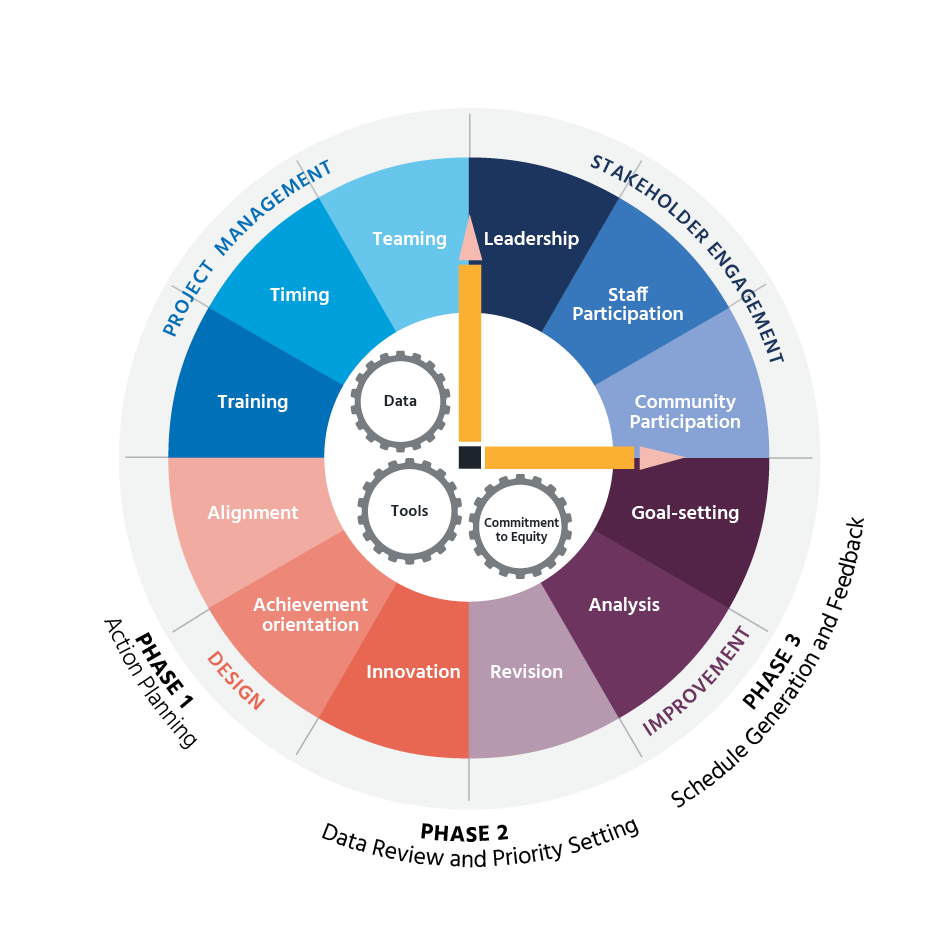4 Ways to Use Master Scheduling to Support Equity
The master schedule can be an important tool in fostering equity and student achievement.

Tools and ideas to transform education. Sign up below.
You are now subscribed
Your newsletter sign-up was successful
Master schedules are an all-too-often overlooked factor in student success according to a new report from Columbia University’s Center for Public Research and Leadership.
About Time: Master Scheduling and Equity examines how traditional approaches to class scheduling often perpetuate equity gaps for students from marginalized groups. This includes decreased access to important courses and the opportunity to work with more experienced teachers.
After reviewing school scheduling practices from across the country, the report’s authors developed a scheduling framework and implementation guide to help school leaders design more equitable class schedules. They also provide an analysis of scheduling tools and software.
Here are some key takeaways from the report, which was conducted with support from the Bill & Melinda Gates Foundation.
1. Master Schedules Are About More Than Logistics
The report notes that when educators move from a technical approach to scheduling, schools and districts have the opportunity to:
- arrange time, resources, and people to maximize student learning and experience
- provide teachers adequate time to collaborate and refine their practice
- provide more equitable access to rigorous and rich coursework
- pair students with the best-fit educator
- improve attendance, learning, and graduation rates
2. Make Creating the Master Schedule a Data-Based Process
Critically examining the data around your master schedule, and particularly the implications for equity, is a key component of creating an effective and equitable master schedule, says Andrea Clay, the lead author of the report and director of legal strategy and policy at the Center for Public Research and Leadership.
Schools should conduct an audit of their master schedule, she says. “It’s looking at the schedules, looking at what courses are available in the high school level, particularly what those courses mean, for either the degree attainment or even college admissions,” she says. “It’s taking a look at the student demographics in each of those classes, understanding whether particular student groups are more likely to take some courses than others or are not accessing those advanced courses.”
Tools and ideas to transform education. Sign up below.
3. Make Master Scheduling a Team Effort
“A lot of schedules are developed by sort of a lone programmer,” Clay says. “One of the key shifts involve going from a single programmer, or a handful of people who sort of take the scheduling process into their domain and hash it out without engaging -- necessarily -- teachers or community members, and really turning that on its head and asking folks how they experience the schedule currently, what their ideas are or challenges they're spotting, how they might structure time in school, and what needs there are.”
By getting input from various stakeholders, a more equitable schedule can be constructed.
4. Complete Your Master Schedule Sooner
When you develop the master schedule is also key.
“Sometimes, scheduling doesn't start until late in the spring. At a few of the sites we spoke to, schedules weren't always complete for the majority of students by the time school had started,” Clay says.
Beginning the master scheduling process sooner in the year can help districts and schools identify potential problems and come up with ways it can be configured to better support equity. Clay also says having the schedule ready sooner allows school leaders to do things such as look at advanced classes and make sure there is equitable access to those. It also gives educators time to recruit students from underrepresented groups to particular classes.
Erik Ofgang is a Tech & Learning contributor. A journalist, author and educator, his work has appeared in The New York Times, the Washington Post, the Smithsonian, The Atlantic, and Associated Press. He currently teaches at Western Connecticut State University’s MFA program. While a staff writer at Connecticut Magazine he won a Society of Professional Journalism Award for his education reporting. He is interested in how humans learn and how technology can make that more effective.

